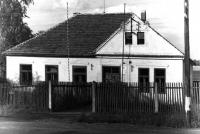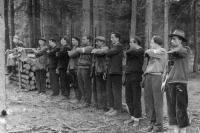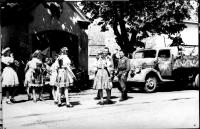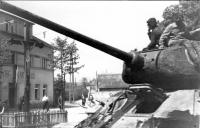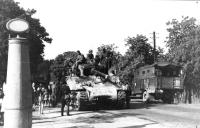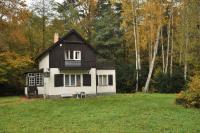We have survived the Nazis and then there came the communists
Edvarda Valentová was born July 5, 1937 in the family of an editor of Lidové Noviny newspaper Edvard Valenta. After the arrival of the German occupying forces the family had to move from Brno to Voznice in the countryside. Edvarda spent the years of WWII there. In 1945 the family moved to Prague, where her father began working for Lidové Noviny again. Edvarda’s father was arrested after the coup d’état in February 1948. After half a year in detention prison he returned as a broken man. Edvarda completed her studies at grammar school, but due to her father’s past political activity she was not allowed to be admitted to the study of medicine which she had dreamt about.
